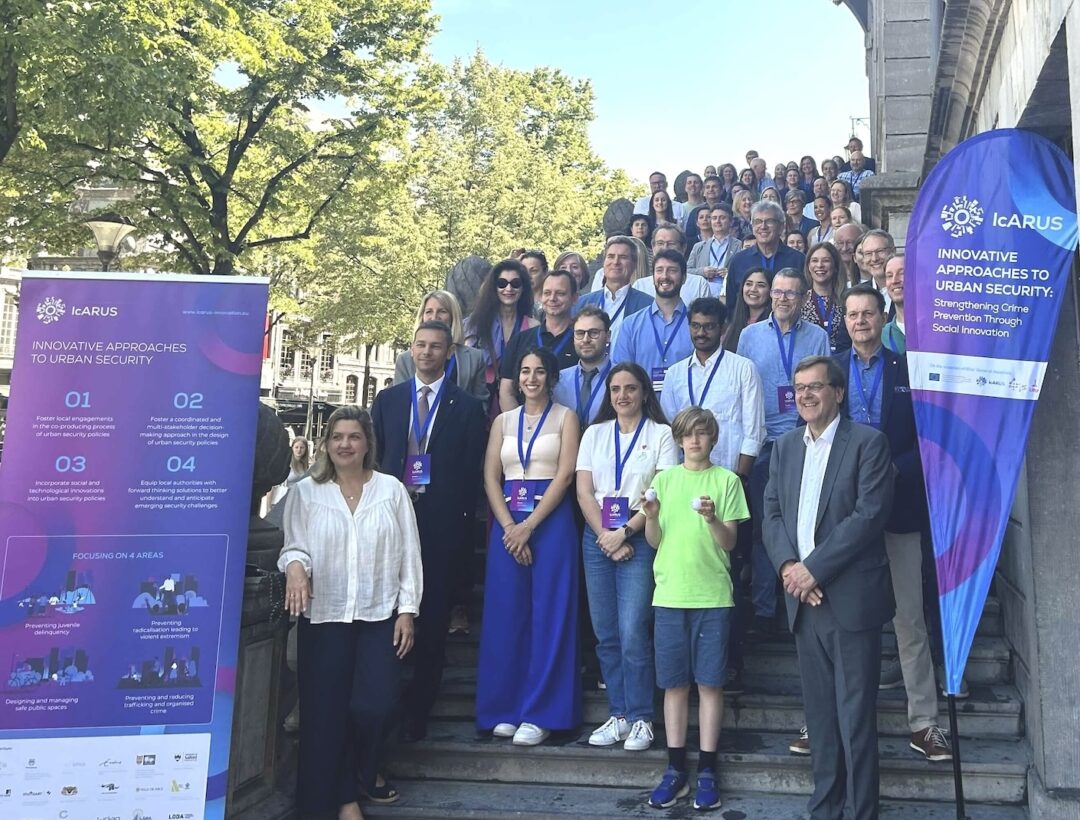
The IcARUS project concludes but it’s not the end
Launched in 2020 with the aim of helping local urban security actors to anticipate and better respond to problems by analysing and revamping their working methods and tools,…
By nature international, agile and capable of swiftly adapting and expanding, organised crime has a direct impact on local territories and is prevalent even in places that have long considered themselves safe. The infiltration of illegal activities into the public sector and the creation of illegal markets have a direct impact on local territories’ economic and social health. Local and regional governments are mobilised to protect their citizens as well as local administrative, economic and democratic processes against organised crime and its repercussions.
Since December 2019, Efus has coordinated a working group on ‘the local roots and impacts of organised crime’, which is led by two member cities, Amsterdam and Rotterdam (Netherlands). The group seeks to adapt local prevention policies to the characteristics of organised crime, in particular the fact that it is transnational; to curb the impact of illicit money flows on local security and public order; to develop adapted evaluation tools; to facilitate the transfer of promising practices among cities; to work on the impact of organised crime on European port cities as well as on society at large in the context of the Covid-19 pandemic, and lastly to strengthen the prevention of human trafficking. Join the group on Efus network
Find the information brochure here
> Reports from the 2024 Security, Democracy and Cities conference:
– Global drug trafficking, local impacts and responses
– Local roots and impacts of organised crime
– How to use the administrative approach to reduce the impact of organised crime at the local level

Discover the actions implemented in communities across Europe through our summary documents, which present the key elements of each of these initiatives, including their context, objectives, activities, budget, evaluation. All of our practice and summary sheets can be found on Efus Network.

Launched in 2020 with the aim of helping local urban security actors to anticipate and better respond to problems by analysing and revamping their working methods and tools,…
July 2024 – Corine Duitman is Director of the Department of Public Safety of the municipality of Rotterdam, Efus’ Vice President city. With a 20-year experience, she is…

Resolution – Rotterdam, The Netherlands, 30 November 2022 The members of Efus’ Executive Committee, gathered in Rotterdam, call on national governments and European institutions to provide concrete political,…

October 2022 – Can the experience of Ciudad Juarez and New York in reducing organised crime be of use to European cities? The level of urban violence in…

Paris, France, September 2022 – Organised crime presents a growing threat to cities throughout Europe, which requires innovative approaches not only from national authorities but also from local…

Brussels, Belgium, April 2022 – How to develop partnership approaches in crime prevention? How to identify the right partners? Who takes the lead? What information is shared with…

1. Why was this Observatory established in Rimini? Ivan Cecchini*: The Observatory on Organised Crime and for the Promotion of a Culture of Legality was established in the…

April 2022 – Playing a vital role in worldwide trade – 90% of the goods traded in the world is shipped by sea¹ – ports in Europe and…

Paris, France March 2022 – As part of a series of web conferences, Efus’ working group on organised crime held a session on 16 March on the ‘Italian…
Nothing left to load.